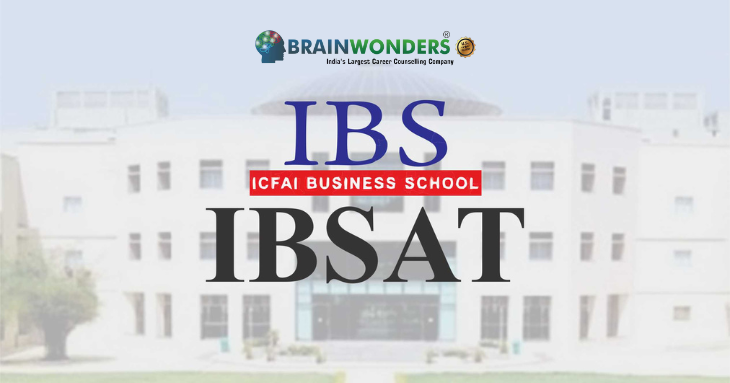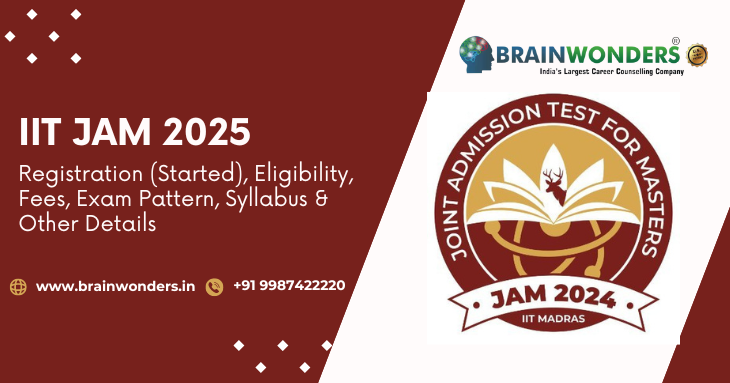

Let the best team of psychologists and career counsellors help you achieve your dream career!
Get your U.S. Patented DMIT analysis and lead the way to a happy and successful career
Blog
15 February,2024 | By Brainwonders
_Course,_Admission_2024,_Fees,_Eligibility,_Syllabus,_Cut_Off.webp)
The full form of MBBS is Bachelor of Medicine and Bachelor of Surgery, which means it’s an undergraduate medical degree course. The course take 5 years to complete and aims for development of numerous skills including the importance of patience, empathy, communication skills. It gives an appreciation of human physique, the common diseases, and minor surgeries. According to the accreditation guidelines, it is mandatory for students to join the competitive National Eligibility cum Entrance Test NEET with 10+2 as a Science stream in Biology, Physics, Chemical, and students should be enrolled in MBBS degree.
MBBS focuses on different specialisations in order to enable learners to gain deeper insights into their fields of desire. It is in itself a huge time consuming process that demands much patience and skill. After the completion of the course the candidates can become Doctors, Medical Officers, Surgeons, General Physicians; and the average salary provided is Rs. 10 LPA. Hiring companies of MBBS degree holders in India are Apollo Group, Manipal Group, Fortis Hospitals and AIIMS.
MBBS full form is Bachelor of Medicine, For entry into the MBBS degree, any college in India requires the student to undertake the National Eligibility Cum Entrance Test-UG (NEET-UG). The above is the only one entrance examination that is considered by both the government and private universities to students who intent to pursue Bachelor of Medicine and Bachelor of Surgery (MBBS).
Earlier, JIPMER MBBS Exam & AIIMS MBBS Exam were two competitive entrance exam for MBBS in India. However, both the exams were scrapped in 2019, making NEET the biggest medical entrance examination in India.
Passing NEET has become mandatory to get admission in the best medical universities to study the MBBS program in India. NTA conducts NEET and qualified candidates are called to counseling depending on their rank and NEET score card. While attending the counseling session, the candidates can opt a college according to their rank, and on that, after the selection they have to furnish all required documents to respective offices.
| Course Name | Bachelor of Medicine and Bachelor of Surgery |
| Abbreviation | MBBS |
| Type | Degree |
| Level | Undergraduate |
| Field | Healthcare |
| Eligibility | 10+2 with Physics, Chemistry, and Biology |
| MBBS Course Duration | 5.5 years |
| Average Fee | Rs. 71,000 to Rs. 2,100,000 |
| Average Salary | Rs. 360,000 per annum |
| Career Opportunities | Physician, Doctor, Endocrinologist, Pathologist, Neurologist, Cardiologist, Gynaecologist |
| Top Recruiters | Apollo Group, Indian Nursing Council, Fortis Hospitals, Manipal Group, Medica |
Tuition fee for MBBS differs from university to university and depends on the type of university it is. In addition to this, the fee structure of the Bachelor of Medicine and Bachelor of Surgery (MBBS) should be considered before a specific college is selected. The average MBBS fees stands at Rs. 5 lakhs.
MBBS is a highly competitive course, which means that the students are selected according to the rank they have secured in the NEET examination. It is notable that a large number of students sit for the NEET test to compete for the few places offered for the MBBS course. Some students even drop a year to prepare for this exam to gain a seat in some of the top medical colleges in India.
Oncelumens have earned the specified grades, they need to follow the NEET counselling process to enroll. After the completion of an MBBS course, the candidates are rewarded with numerous career opportunities within the medical field. PG graduates can further specialize through MS, MD or DNB courses. This creates opportunities for many medical professions, some of which are general surgeon, endocrinologist, pathologist, neurologist, physician, ENT specialist, cardiologist, oncologist, among others.
The admission to the degree program MBBS has certain requirements that need to be fulfilled by an applicant. The candidates are encouraged to carefully study all the relevant information which include the eligibility to undertake MBBS and the admission process. Below, we outline the critical MBBS eligibility criteria:
Candidates must possess specific skills to maximize the benefits of their MBBS degree program. After obtaining an MBBS degree, students should develop the following skill sets to advance in their careers:
| Patience | Physical Strength |
| Communication Skills | Attention to Detail |
| Critical Thinking | Empathy |
There are different procedures that different institutions and schools use to admit students to their MBBS programs. As stated earlier, educational institutions use various strategies to recruit students into Bachelor of Medicine and Bachelor of Surgery courses. Since students secure their admission through these channels, they require awareness of these methods to obtain an MBBS degree. Here are the various methods by which candidates can gain admission to an MBBS degree program:
Entrance Exams: The most recognised technique of selecting candidates for admission to MBBS courses is through entrance examinations administered by colleges and universities. These entrance exams are taken by aspiring MBBS students to secure a Bachelor of Medicine and Bachelor of Surgery (BMBS or MBBS). The scores obtained from these exams would allow the students to apply to some universities that offer such degrees.
Merit-Based: Many of the colleges and universities provide admission to their MBBS programs on the basis of the marks scored in 10+2 examination. MBBS eligibility criteria are coupled with the scores obtained in 10+2. These are institutions that accept students on the basis of cutoff lists. However, there are very few such colleges and for almost all the MBBS programs it is necessary to clear a medical entrance exam.
Several universities conduct entrance examinations for the Bachelor of Medicine and Bachelor of Surgery (BMBS or MBBS) degree. In some major universities, the selection process for this degree considers the total marks in the final year of high school and the entrance exam.
The National Eligibility cum Entrance Test-Undergraduate (NEET-UG) is the crucial criterion for admission to the MBBS program. NEET UG serves as the common entrance examination required for admission to all medical universities and colleges in India. Every applicant aspiring to pursue the MBBS course must apply for the National Eligibility cum Entrance Test-Undergraduate (NEET-UG).
Previously, there was an exception for admissions to AIIMS and JIPMER MBBS programs because these institutions used to conduct their medical entrance exams. However, it's important to note that these institution-specific entrance exams have since been eliminated.
The cut-off for Bachelor of Medicine, Bachelor of Surgery (MBBS) assesses a student's merit for admission to the MBBS degree program. In the MBBS admission process, the primary criterion that every medical college considers is the NEET cut-off. The NEET cut-off is determined by factors such as the number of students taking the NEET examination and the level of difficulty of the NEET question paper.
| CMC Vellore | KMC Manipal |
| KMC Mangalore | MS Ramaiah Medical College Bangalore |
| St Johns Medical College Bangalore | AFMC Pune |
| KPC Medical College and Hospital, Jadavpur | Maulana Azad Medical College, New Delhi |
| HIMSR New Delhi | IMS BHU |
Every medical college in India tries to create its curriculum liberal, progressive and future-centric for students seeking MBBS degree. The BMBS creates practical and theoretical transferable knowledge about the ongoing trends and subjects in the healthcare landscape. India requires a large number of healthcare staff, although the health care sector offers very few job openings with excess of doctors. Availing an MBBS degree makes students capable to serve their purpose in medical as well as health care field.
| Ophthalmology | General Medicine |
| Orthopedics | General Surgery |
| Anaesthesiology | Obstetrics & Gynaecology |
| Dermatology | ENT (Ear, Nose, and Throat) |
| Psychiatry | Pediatrics |
The graduates in Bachelor of Medicine and Surgery (MBBS) are in high demand within the employment market because different opportunities are available in the government and private sectors in the health sector. It is from this establishment that graduates can practice in biomedical companies, medical centers and companies, hospitals, laboratories, emergency departments, community health facilities, and personal practices. The dynamic and expansive nature of the healthcare sector offers several employment opportunities for student after graduating their MBBS program.
MBBS is an all-round medical course from which one can prescribe drugs; many proceed with a master’s program to become accredited doctors in the subspecialties. Some of the leading recruitment agencies for MBBS graduates in India include Apollo Munich Health Industries Co Ltd, Medanta Hospitals, Sun Pharmaceutical Industries Ltd, Fortis Healthcare Ltd and CIPLA Ltd.The jobs available in these facilities include for instance, anaesthetists and cardiologists.
Other Popular Medical Degrees
In this section, we will explore various career opportunities available to individuals with an MBBS degree:
A doctor is a person that practices in different areas of the health system and provides surgical, therapeutic, and medical services to individuals. They can identify diseases, perform checkups, study a patient’s records and can even request some form of tests for proper handling. Gaining a license to practice as a doctor requires a holder to have completed an MBBS course and a post graduate degree course.
Chief medical officers also known as medical officers majorly perform clinic administrative functions. They diagnose and treat, offer advice on health issues and manage diseases. This profession is a well paid career for the MBBS graduates. Medical officers help in overseeing the general management of patients and administration of duties of other doctors. Group members can include practitioners involved in implementation of treatment and evaluating individual and family requirement for treatment.
Surgeons are professionals who, in addition to being responsible for diagnosis, surgery, are also charged with giving medical attention and care. Surgeries are one of the best career options for those, who have completed MBBS. Surgeons also often have managerial roles across the clinical team and specifically supervising other surgeons, anesthesiologists, and nurses during the surgery process in the surgical theatre. They carry out activities in order to correct immunological or other anomalies, or to fix an injury.
corn boasts of course, graduates with an MBBS degree can practice as general practitioners. They investigate, identify and manage acute and chronic diseases affecting patients. Non-specialist doctors are also significant in the initial medical disease states. In case of aggravated status or if the treatment is specialized in some way, then he may refer the patient to a particular specialist. General practitioners offer their patients a broad scope of practice without surgery and are expected to have adequate knowledge to deal with multiple, severe, crucial conditions.
Here are some of the top recruiters who hire MBBS graduates:
These organizations offer excellent career opportunities for MBBS graduates in various medical and healthcare roles.
The average salary of MBBS graduates can vary significantly based on several factors. Variations in salary are often influenced by the sector and organization of employment, as well as an individual's commitment and experience in the workplace. Here, we outline the potential salary ranges for MBBS graduates:
| Job Profiles | Average Salary |
| Doctor | Rs. 5.4 LPA |
| Medical Officer | Rs. 5.2 LPA |
| Surgeon | Rs. 10.8 LPA |
| General Physician | Rs. 7.2 LPA |
| Paediatrician | Rs. 8 LPA |
| Semester-I | Semester-II | Semester-III | Semester-IV | Semester-V |
| Fundamentals of Disease and Treatment | Health and the Environment | General Pathology | Systemic Pathology | Special Pathology |
| Introduction to Medical Practice I | Basic Haematology | Neoplasia | Haematology | Clinical Pathology |
| Cell Biology | Healthcare Concepts | Hereditary Disorder | Cardiovascular System | General Pathology |
| Locomotor System | Neuroscience 1 (Peripheral System) | Environmental Pathology | Alimentary System | Growth Disturbance and Neoplasia |
| Introduction to Molecular Medicine | Respiratory System | Nutrition Disorders | Common Symptoms and Signs | Immunopathology |
| Introduction of Embryology and Histology | - | Immunity | - | - |
| Semester-VI | Semester-VII | Semester-VII | Semester-IX | Semester-X |
| Epidemiology of communicable diseases | Infectious disease | Endocrine disease | Nervous system | Rotatary Internship Programme |
| Epidemiology of non‐communicable diseases | Nutritional disease | Metabolic and Bone disease | Kidney disease | - |
| Reproductive and child health | Geriatric disease | Emergency medicine and critical care | Environmental disorders, poisoning and snake bite | - |
| - | Diseases of the immune system, connective tissue, and joints | Brain Death, Organ donation, Organ preservation | Emergency medicine and critical care | - |
| - | Haematology and Oncology | Nervous system | - | - |
| - | - | - | - | - |
Q1. Is MBBS required for a career as a doctor?
Ans: MBBS is the most popular and widely recognized doctoral degree, which stands for Bachelor of Medicine and Bachelor of Surgery (MBBS). The primary bachelor's degree allows graduates to use the title "doctor" in their names. An MBBS degree is the foundation for a career as a medical professional.
Q2. What is the full form of an MBBS degree?
Ans: The abbreviation MBBS stands for Bachelor of Medicine and Bachelor of Surgery. This degree program grants both the Bachelor of Medicine and Bachelor of Surgery, serving as the two primary undergraduate medical degrees. The MBBS program typically lasts 5 to 6 years, including the internship phase.
Q3. What is MBBS called in the USA?
Ans: In the United States of America, the medical degree is recognized as MD (Doctor of Medicine), not MBBS. Medical courses in the USA are conducted in English, and the medical degrees accepted there include MCI, WHO, ECFMG, and MCC. The MBBS format for medical education has already been established in the US.
Q4. Is Indian MBBS valid in the USA?
Ans: In the United States, an Indian student cannot immediately practice as a doctor after completing an MBBS because the basic level of practice requires postgraduate medical education in the USA. The United States Medical Licensing Examination (USMLE) outlines specific medical courses to be completed in the USA after obtaining an MBBS degree.
Q5. Is doing an MBBS from a private college worthwhile?
Ans: Yes, the college from which you earn your MBBS degree is less important than your performance in your medical academic pursuits. Your dedication and proficiency are the key factors that matter.
Q6. Is qualifying for NEET to study MBBS in private medical colleges mandatory as well?
Ans: Yes, it is mandatory to qualify in the National Eligibility cum Entrance Test (NEET) for admission to both government and private medical colleges. NEET is the standard entrance test for all undergraduate medical degrees in India.
Let the best team of psychologists and career counsellors help you achieve your dream career!



,_Syllabus,_Pattern,_Old_Question_Papers.png)

